SCOTLAND YARD BACKED A THAI POLICE INVESTIGATION CONDUCTED IN AN UNQUALIFIED FORENSICS LAB.
AND ITS DOWN TO THOSE ‘CHILLING EFFECTS’ AGAIN
The police laboratory used to conduct the controversial DNA analysis on the savage murders of Britons Hannah Witheridge and David Miller was not internationally accredited to carry out the work according to the director of Thailands laboratory standards organisation.
The lab at the Police Hospital in Bangkok did not receive accreditation until January 29 2015 some four months after the murders and long after they were pinned on two 21-year-old Burmese migrant workers, Zaw Lin and Wai Phyo.
The revelation not only calls into further question prosecution evidence in the case but also a Scotland Yard report supportive of the Thai police investigation on which statements by the families of the two victims issued through the Foreign and Commonwealth Office, were also supportive of the Thai Police prosecution.
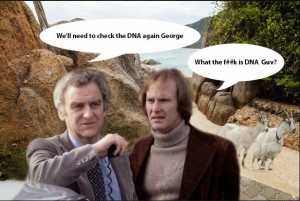
The information was released by the Suthon Vongseree, Director of the Bureau of Laboratory Quality Standards, in answer to a complaint from Australian lawyer Ian Yarwood, questioning the qualifications of the Laboratory of the Toxicology Sub-Division and Bio-Chemistry Sub-Division of the Institute of Forensic Medicine and the Police General Hospital.
Suthon Vongseree had rejected Yarwood’s complaint that the police lab was not up to its ISO standard stating:
“Even though I did not officially know you, I have forwarded all 8 questions to the laboratory and asked the reply. Until now, the laboratory does not answer those questions. The accusation on not show the accreditation symbol on the report is irrelevant to the requirement since during that time the laboratory is not accredited for DNA testing. There is no miss-conduct on the usage of accreditation symbol as you try to accuse this laboratory.”
Mr. Vongsoree told Mr. Yarwood he would not be replying to any more letters from him instructing the lawyer to go through the proper channels.
Clearly irritated he composed his ‘until kingdom come’ reply stating:
“Now read this carefully.
It is legal in Thailand, that only authorized person can give such information to anyone who can demonstrate official status and have to submit the questions, through the official routes eg. Through any Thailand Embassy in Canberra or Sydney or Brisbane or in Adelaide or in Perth. The Embassy will connect to the Ministry of Public Health, then to Department of Medical Sciences and finally to BLQS. If the questions involve in many Ministries, then there will be more document communicating among the governmental offices. From now on, I will not respond to your mail, unless you will process the communication in the official way.”
Lawyer Yarwood had jumped the gun, perhaps fearing, like many, that an official complaint would not be made against the lab in question by the Thai defence lawyers, a complaint which could not be covered up because, ultimately, the enforcement body is the Australian based APLAC -the Asia Pacific Laboratory Accreditation Cooperation Inc. And this organisation has powers to effectively close down Thailand’s testing procedures.
A complaint had already been drawn up by the defence team authored by another Australian lawyer, a barrister, in consultation with top legal and forensic authorities in the field of DNA. This is in the hands of the defence who were reported to be awaiting the ‘appropriate moment’. A copy was supplied to Ian Yarwood for ‘guidance’ as he was making many statements on the conduct of the murder investigations.
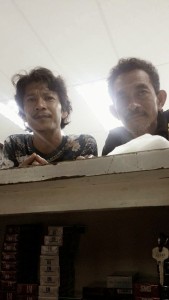
Although the appeal entered on behalf of the two young Burmese is strong the defence still has to over-ride two vital factors almost certainly affecting the case: ‘Loss of Face’ and ‘The Chilling Effects’.
 Loss of Face: After a controversial investigation marred by the usual destruction of the crime scene, a dramatic chase after which a young Briton Sean McAnna claimed the island mafia, in the presence of police, had threatened to take him to the top of the island’s highest hill where he would ‘be found hanged’, and a statement by the Regional Police Chief General Panya Mamen that it was indeed local officials, for officials read ‘mafia’, who did it, Thai Police recovered their dignity.
Loss of Face: After a controversial investigation marred by the usual destruction of the crime scene, a dramatic chase after which a young Briton Sean McAnna claimed the island mafia, in the presence of police, had threatened to take him to the top of the island’s highest hill where he would ‘be found hanged’, and a statement by the Regional Police Chief General Panya Mamen that it was indeed local officials, for officials read ‘mafia’, who did it, Thai Police recovered their dignity.
They did this by announcing that they now had a 100 per cent water-tight case against Wai Phyo and Zaw Lin and had been commended by Scotland Yard. They further stated: ‘Relatives of the deceased in the UK have stated that they are confident in the evidence in the Koh Tao case and that the evidence was clear beyond a shadow of doubt’.
“We read from the same books,” announced Thailand’s Chief of Police, referring to Scotland Yard.
The image of the country, perceived safety of tourists, and of course image of the Thai police are all at stake. So unless outside bodies with influence are called in Thailand could simply reply through the Appeal Court: ‘This is our country. Our procedures are proper and you have no business to interfere.’

The Chilling Effects: In the wake of the controversy over the murder investigation British Prime Minister David Cameron at the invitation of the Thai authorities sent over a team of Scotland Yard and Norfolk officers to ‘observe’ the Thai police investigation. These included a ‘scenes of crime officer’ but did not include a Home Office forensic science officer skilled in the field of DNA. These officers did no investigating, and thus relied totally on what Thai police told them. The officers were entertained for over a month, and their subsequent report reflected favourably on the Thai police enquiry. But we know from documents in the High Court that that report included facts given by Thai police to them which were simply not true, particularly in relations to the confessions by the young Burmese.
(The Met Police had claimed that the boys had confessed in front of a judge and their own lawyers)
The defence thus sought to get a copy of the Metropolitan Police Service (MPS – New Scotland Yard) report and had taken the issue to the High Court. It was then that Scotland Yard presented their ‘Chilling Effects’ defence against the release of the documents.
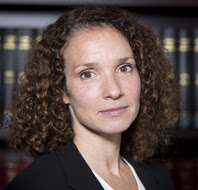
In case number HQ15X0311 in the Queen’s Bench Division, High Court of Justice counsel for the prosecution Anya Proops had argued that ‘such was the power of the British public interest that it would still trump private interest’.
The ‘chilling effects’ were the ‘substantial and adverse effects on law enforcement, fulfilment of public policy and the UK’s security objectives’.
Put another way; it was better to sacrifice the interests of two young Burmese, rather than destroy the British relationships with the Royal Thai Police without whom of course British police could not apprehend Britain’s wanted villains in Thailand – a country which has fast become a new ‘Costa del Crime’ for the British underworld.
In the High Court this might have seemed sense. But in reality it is unlikely to have had a lasting effect on relations. Thai bad police come and go. Its the nature of Thailand. Tomorrow is just another day. Scotland Yard had misrepresented the real situation on the ground in Thailand where in many cases foreign criminals pay their dues to police to be left alone.
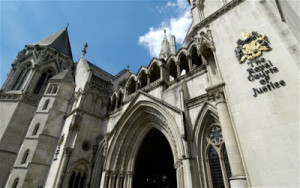 But Justice Green had no access to what was really going on in Thailand and posed the following:
But Justice Green had no access to what was really going on in Thailand and posed the following:
“A foreign prosecutor fails to disclose to a defendant a key piece of evidence of great value to the defendant in a criminal case. This item is however recorded in an MPS report and amounts to personal data.
The report explains that there is compelling evidence that the foreign forensic scientists employed by the police abroad have mixed up DNA samples. It also records that the prosecution are nonetheless seeking to rely in court upon the wrong DNA evidence to inculpate the accused.
This entry might be pivotal to the defence and might quite literally represent a matter of life or death. In those circumstances does the Court sacrifice the accused for the wider principle of comity and trust between authorities? Ms Proops for the MPS submitted that such was the power and force of the public interest objectives the MPS advanced that even in such extreme circumstances the public interest would still trump the private interest.
“Does the court sacrifice the accused for the wider principle of comity and trust between authorities?”
In any event the two Burmese were sacrificed to ‘public interest’. Justice Green rejected the application on behalf of Wai Phyo and Zaw Lin saying.
“I feel considerable unease. I sit a long way from the seat of the trial and do not have a true hands-on feeling for the way evidence has been tendered by the prosecution or the main lines of defence.”
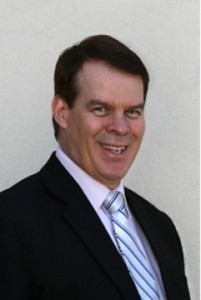
He would have felt a lot more unease had he known more about the controversy over the DNA testing. But did Scotland Yard know the ;ab was no accredited to carry out such work? Possibly not, although they must have been briefed by the Bangkok based National Crime Agency officer. It is however safe to assume that Scotland Yard did not query any of the DNA procedures because they did not have the experts at hand.
From personal experience I know from meetings with a members of the Serious Organised Crime Squad (now the National Crime Agency) and British Customs investigators, that the police lab had been the subject of mirth amongst members of ‘FRANC’ – the Foreign Anti-Narcotics Committee* for years. The joke was that Thai police had this pristine laboratory in the centre of Bangkok for years but it was still pristine because it was rarely ever used because ‘ That’s not the way they do business’.
Lawyer Ian Yarwood was somewhat optimistic in expecting answers from BLQS. He complained that he had to wait 132 days for a reply to one letter. I think it is fair to say that under the present regime in Thailand very few people are getting prompt replies from government departments, not even foreign embassies.
Meanwhile those campaigning for the release of the two Burmese are fractionalised. Ian Yarwood’s complaint was published in the Samui Times by its owner Suzanne Buchanan and copied onto the Thai Visa website.
But I myself have had a copy of the BLQS complaint for some time on the same basis ‘ for guidance’. Suffice to say the complaint demonstrates police could have totally made up their findings and simply produced as many suspect – scapegoats’ as people from whom they had taken DNA.
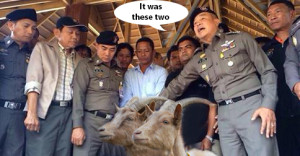
The problem is where to go now, because, as Yarwood admits, he does not have the relevant documents which support HIS complaint, nor has he actually seen them. And now QLBS will not talk to him. Yet his complaint without the pre-amble is the same as the one prepared by the defence.
Yarwood also expresses dismay at the fact that there is no verbatim record taken of court proceedings in Thailand and that reporters are not allowed to take a short-hand note.
“It is worth noting that there is no verbatim transcript of the proceedings in Thai courts, unlike in most Western courts. It appeared that the secretaries of both ILAC and APLAC were unaware of this until I brought it to the attention of Mr Fraser (Mr Michael Fraser, is the APLAC Secretary) in May 2016. The “transcripts” produced by Thai courts consist of what the relevant judge records as a mere paraphrase of the answers of witnesses and without the important context of the questions that the witnesses were answering. In the circumstances, one can easily appreciate that such a transcript has very limited use for your investigation or for any possible further investigation that APLAC might wish to conduct,” he writes.
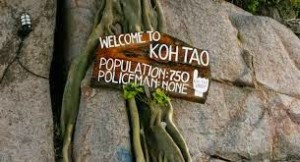 Indeed, Ian Yarwood is correct and this allows judges to ‘fix’ cases by glossing over and in some cases not even recording vital witness testimony, or re-phrasing it in a subtle way. They will also not record what they do not understand.
Indeed, Ian Yarwood is correct and this allows judges to ‘fix’ cases by glossing over and in some cases not even recording vital witness testimony, or re-phrasing it in a subtle way. They will also not record what they do not understand.
More often than not lawyers are fearful to criticise the judge’s record because to upset the judge could have more disastrous consequences than leaving something uncorrected.
But established Thai court procedures are totally irrelevant to the complaint questioning laboratory accreditation. So its now back to the defence team to make that formal complaint.
And I guess they will be looking at witness claims in evidence about the qualifications of the police lab.
A BOTCHED INVESTIGATION – NOW A BOTCHED CAMPAIGN?
Unfortunately in some aspects saga of support for the young Burmese has become mired by accusation, and counter accusation.
The defence has been described as shoddy (but by western standards this is a given in most Thai cases). However even international experts say there is enough in court documents to have the cases dismissed.
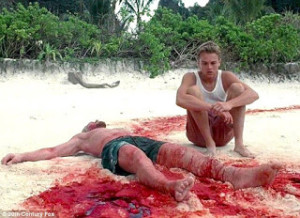
Then there have been confusing claims in relation to David Miller’s death, the authenticity of a letter submitted by the Foreign Office on behalf one of the victim’s families, coupled with stories of clandestine burials of other ‘foreigners’ by the island mafia on Koh Tao – all of which, if actually substantiated would be dynamite making Koh Tao a lot more dangerous than Alex Garland’s ‘The Beach’.
And what happened to the ‘speed boat’ driver found on drugs in a cave on Koh Samui after leaving Koh Tao on the morning of the murders? He too is alleged to have confessed.
New accusations surfacing on Facebook suggest that a deal had been struck in the early days to get the two young Burmese released ‘ but then other migrants would have to be found’ to take their place. And of course Andy Hall of the Migrant Workers Rights Network has also been the butt of many attacks.
And Su Buchanan, the editor of the ‘Samui Times’ who fled back to Britain to expose the truth about Koh Tao, and who was married into a southern Thai family a step up the ladder from the Koh Tao ‘people of influence’ for years, has yet to make her contribution. She now says. ‘Perhaps you’ll have to wait for my book’.
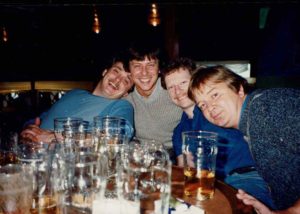
FRANC* – The Foreign Anti Narcotics Committee was a monthly liaison meeting between foreign police officers based in Bangkok and formed when the major crimes they were dealing with involved narcotics trafficking. These meetings often spilled over into some rowdy social affairs and I attended a few of these ‘after parties’. This stopped with the introduction of more p.c. behaviour, as did private fraternisation with journalists. ‘You’ll have to wait for the book!’



